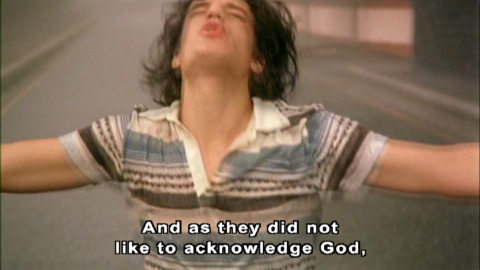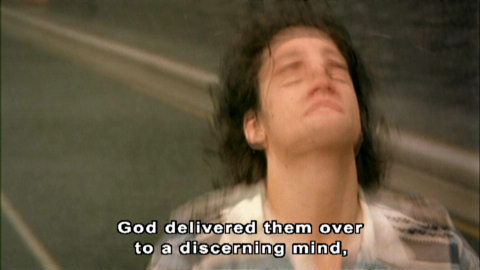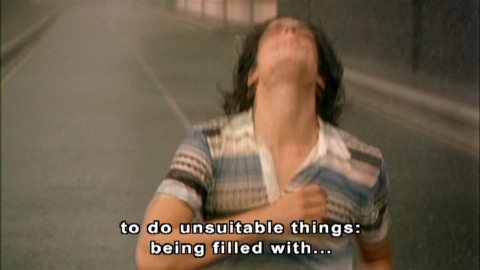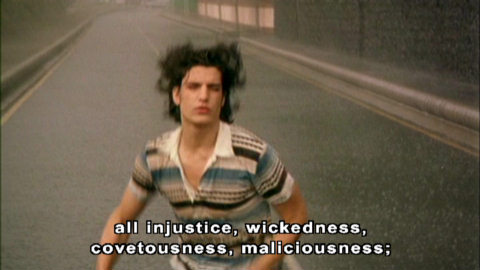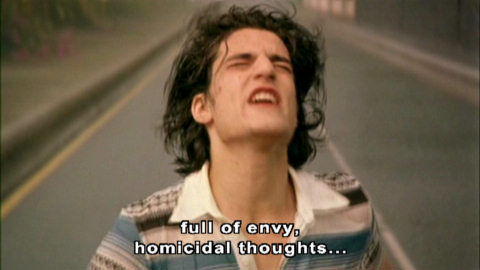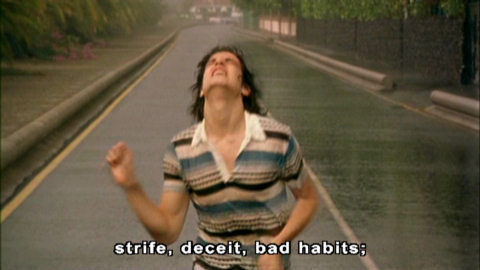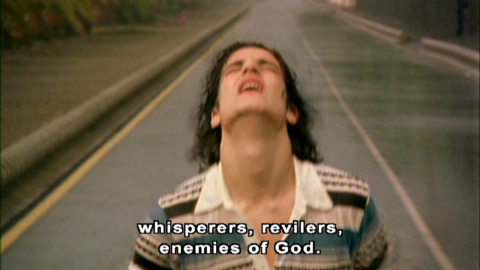Ma Mère (2004) from Johnny Web (Uncle Scoopy; Greg Wroblewski) |
|
Ma Mère is adapted from a 1962 book by a French "moral theorist" named Georges Bataille. I guess a moral theorist is something like a novelist, except without those pesky obligations to characterization and narrative structure. It's a profession with a long and distinguished history in France, dating back at least as far as the grandfather of all so-called moral theorists, the notorious Marquis de Sade. In fact, France is the only country where it is not necessary to write in "moral theorist" as your profession on a blank line of your tax return. They have a pre-coded checkbox for it. And they only have six checkboxes altogether: teacher, legionnaire, shopkeeper, chef, moral theorist, and "other." I guess I should have been French, because I really wanted to major in moral theory at school, but they only teach it at the Sorbonne, and I couldn't get in. My grades were good enough, but I was eliminated because I don't have a dueling scar. I then decided to change my major and go to Heidelberg instead, because the Germans will waive the dueling scar requirement if you're willing to wear a monocle. It's now patently obvious that I would have made a terrible moral theorist anyway. For example, when evaluating the moral implications of adapting an aloof, perverse 1962 novel to modern times, my first question would have been "why?" Wrong response. Christophe Honoré, the writer/director of this film by-passed the trivial "why?" question and proceeded directly to "how?" And, by God, he nailed it. For example, the 17-year-old in the story spends most of his time weeping, gnashing his teeth, and praying to the Virgin Mary. He says things like ... oh, why bother with things "like" what he says? Here's exactly what he says:
Wow! Did Honoré nail the spirit and lingo of today's youth, or what? You'd never know that was written in an earlier age. He must have had a sound camera planted right in the locker room at the local high school! Philip French of The Observer described the film as follows:
The original moral theorist, the good Marquis himself, would be quite pleased with this film, which includes various forms of sadism, degradation, and depravity. As you might guess from the title, the young man and his mother have an Oedipal relationship, but it is not enough for the son to give mom the ol' in-out. That would be insufficiently theoretical, morally speaking. Instead the mother and son tease one another until the great moment finally arrives, at which time he cuts her stomach with a surgical knife, then starts feeling her wound with one hand while masturbating with the other. Mom says, "the only sin in what we are about to do is wanting to survive it," and then cuts her own throat with the scalpel. As she gurgles her final sounds, sonny boy continues to masturbate furiously. When the lad attends mom's wake, the musical score plays the famous Turtles song "Happy Together!" Now THAT is moral theory at work! And fun for the whole family. |
|||||||||
|
||||
|
||||
